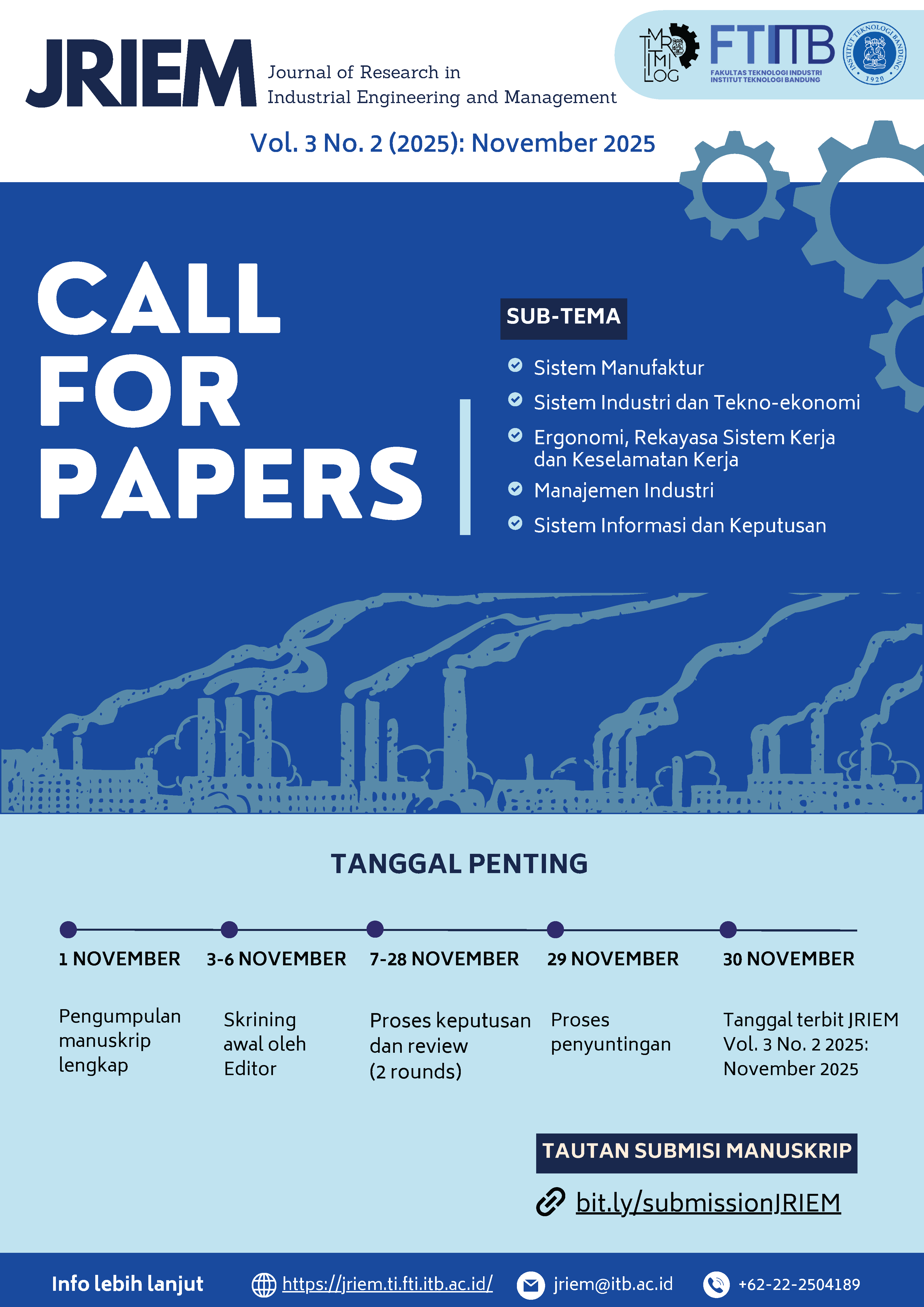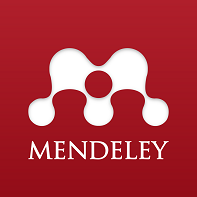Petunjuk Penulis
1. Standar Pelaporan
Para penulis harus memberikan laporan yang akurat mengenai pekerjaan yang mereka lakukan, dan melakukan diskusi yang obyektif tentang signifikansinya. Makalah perlu menampilkan data mendasar yang akurat dan detail serta referensi yang cukup agar orang lain dapat mereplikasi karya tersebut. Tindakan yang secara sengaja membuat pernyataan palsu atau tidak akurat merupakan perilaku yang tidak etis dan tidak dapat diterima. Artikel profesional yang dipublikasikan juga harus akurat dan obyektif, sementara karya editorial yang mengemukakan opini harus dijelaskan dengan jelas.
2. Eksklusivitas Kerja
Para penulis harus memastikan bahwa karya yang mereka hasilkan sepenuhnya orisinal, dan jika mereka menggunakan karya atau kata-kata dari orang lain, maka hal tersebut harus diakui dengan tepat. Terdapat berbagai macam bentuk plagiarisme, mulai dari menyalin sepenuhnya makalah orang lain dan mengakuinya sebagai karya sendiri, hingga menjiplak atau mengubah sebagian besar makalah orang lain tanpa menyebutkan sumbernya. Segala bentuk plagiarisme merupakan perilaku yang tidak etis dan tidak dapat diterima. Selain itu, seorang penulis tidak diperbolehkan untuk menerbitkan makalah yang sama di lebih dari satu jurnal atau publikasi utama. Mengirimkan makalah yang sama ke beberapa jurnal secara bersamaan juga dianggap sebagai perilaku yang tidak etis. Umumnya, penulis tidak diperbolehkan untuk mengirimkan makalah yang sebelumnya telah diterbitkan ke jurnal lain untuk dipertimbangkan. Namun, kami akan mempertimbangkan publikasi makalah konferensi jika versi yang diperpanjang terdiri dari minimal 30% materi baru.
3. Bahaya dan Subjek Manusia atau Hewan
Apabila pekerjaan yang dilakukan melibatkan penggunaan bahan kimia, prosedur, atau peralatan yang membawa risiko tidak biasa dalam penggunaannya, maka penulis harus menjelaskan hal tersebut secara jelas dalam makalah. Jika dalam pekerjaan melibatkan penggunaan hewan atau subyek manusia, maka penulis harus memastikan bahwa makalah mencakup pernyataan bahwa seluruh prosedur yang dilakukan sesuai dengan hukum dan pedoman kelembagaan yang berlaku dan telah disetujui oleh komite kelembagaan yang sesuai. Penulis juga diharuskan menyertakan pernyataan dalam makalah bahwa eksperimen dengan subyek manusia telah mendapat persetujuan. Hak privasi subyek manusia harus selalu diperhatikan.
4. Kepenulisan Makalah dan Hak Cipta
Hanya orang-orang yang memberikan kontribusi signifikan pada konsepsi, desain, pelaksanaan, atau interpretasi dari karya yang dilaporkan yang boleh tercantum sebagai penulis. Semua kontributor yang memberikan kontribusi signifikan harus terdaftar sebagai rekan penulis. Sedangkan mereka yang berpartisipasi dalam aspek substantif tertentu dari proyek penelitian harus diakui atau terdaftar sebagai kontributor. Penulis harus memastikan bahwa tidak ada penulis yang tidak pantas dimasukkan dalam makalah dan bahwa semua penulis bersama telah melihat dan menyetujui versi final dari makalah tersebut dan menyetujui untuk mempublikasikannya. Setiap makalah yang ingin diterbitkan harus disertai dengan perjanjian publikasi yang telah ditandatangani dan berfungsi sebagai transfer hak cipta dari penulis ke penerbit. Setelah makalah diterima, salinan perjanjian tersebut harus diberikan.
5. Pengakuan
Para penulis harus memberikan pengakuan yang tepat terhadap karya orang lain. Mereka harus mengutip publikasi yang memiliki pengaruh dalam menentukan sifat dari karya yang dilaporkan. Penulis tidak boleh menggunakan atau melaporkan informasi yang diperoleh secara pribadi, seperti dalam percakapan, korespondensi, atau diskusi dengan pihak ketiga, tanpa izin tertulis yang jelas dari sumbernya. Demikian pula, informasi yang diperoleh melalui layanan rahasia, seperti penilaian manuskrip atau aplikasi hibah, tidak boleh digunakan tanpa izin tertulis dari penulis karya yang terlibat dalam layanan tersebut.
6. Persyaratan Pengungkapan
Ketika mengirimkan makalah, penulis diharuskan untuk mengungkapkan afiliasi atau keterlibatan yang signifikan, baik secara langsung maupun tidak langsung, dengan organisasi atau entitas yang memiliki kepentingan keuangan dalam materi yang dibahas. Hal ini meliputi pekerjaan, konsultan, kepemilikan saham, hibah, paten, royalti, honorarium, atau kesaksian ahli yang diterima atau ditangguhkan. Keterlibatan keuangan semacam ini sering kali tidak dapat dihindari dan bukan merupakan alasan untuk menolak makalah. Namun, spesifikasi pengungkapan harus tetap dirahasiakan. Jika disetujui oleh Editor, pernyataan umum tentang pengungkapan dapat dimasukkan dalam bagian pengakuan makalah.
7. Kesalahan dalam Karya yang Diterbitkan
Jika penulis menemukan kesalahan atau kekeliruan yang penting dalam makalahnya yang sudah diterbitkan, maka ia harus memberitahukan editor jurnal atau penerbit dengan segera dan bekerja sama dengan mereka untuk menarik kembali atau memperbaiki makalah tersebut. Jika editor atau penerbit diberitahu oleh pihak ketiga bahwa makalah yang telah diterbitkan mengandung kesalahan yang penting, maka penulis harus segera menarik kembali atau memperbaiki makalah tersebut atau memberikan bukti kepada editor untuk mendukung keaslian makalah tersebut. Hal ini merupakan kewajiban penulis.
8. Penafian
Artikel yang diterbitkan dalam Journal of Research in Industrial Engineering and Management mencerminkan pandangan pribadi penulis dan tidak mewakili pandangan Institut Teknologi Bandung (ITB). Journal of Research in Industrial Engineering and Management tidak menjamin kepantasan untuk tujuan apa pun dari metode, produk, proses, atau perangkat yang dijelaskan atau diidentifikasi dalam makalah Penggunaan nama merek hanya untuk tujuan identifikasi dan tidak menunjukkan dukungan dari Journal of Research in Industrial Engineering and Management.
9. Persiapan Makalah
Penulis dapat mengirimkan makalah dalam format MS Word secara online melalui https://jriem.ti.fti.itb.ac.id/index.php/jriem/about/submissions. Panjang makalah sebaiknya tidak lebih dari 12 halaman dengan format kertas A4 - single-sided papers. Penulis tidak perlu menomori halaman. Makalah dapat ditulis dalam Bahasa Indonesia atau Inggris.
Halaman judul harus mencakup judul yang spesifik, nama penulis, dan abstrak sekitar 200 kata pada awal makalah. Informasi afiliasi, alamat, telepon, nomor faks, dan alamat email harus diberikan di bawah nama penulis. Ukuran font untuk judul adalah Times New Roman 14pt, sedangkan untuk detail penulis adalah Times New Roman 11pt dan isi artikel menggunakan Times New Roman 10pt.
Jika makalah ditulis dalam bahasa Indonesia, abstrak harus ditulis dalam bahasa Indonesia dan Inggris. Pastikan untuk menyesuaikan margin makalah dengan margin dari template yang telah disediakan. Referensi sebaiknya menggunakan alat referensi seperti Mendeley atau Zotero.




